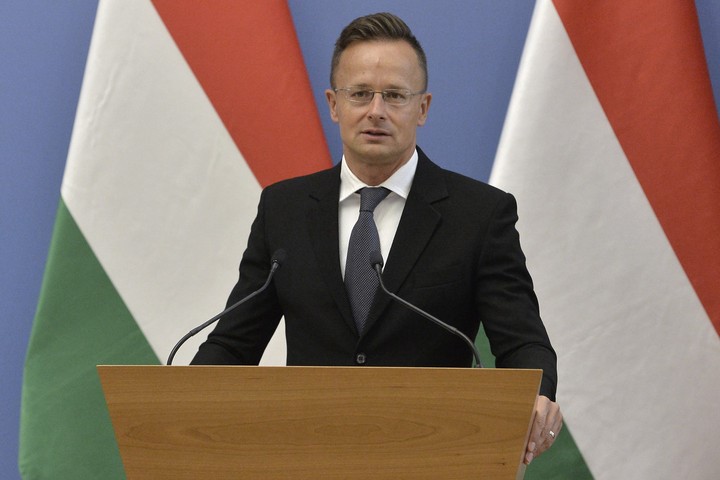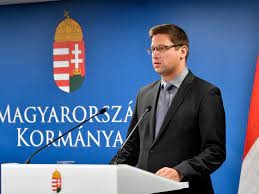Hungary is implementing its largest international economic development program in Uganda to stop migration, Minister of Foreign Affairs and Trade Péter Szijjártó announced on Monday.
The head of the ministry received his Ugandan colleague, Odongo Jeje Abubakar, in Budapest, and warned at the joint press conference that "currently, migration and the terrorism closely related to it represent the biggest threat to the security of Europe", and Africa is one of their primary sources.
The government believes that a situation must be created that allows the locals to stay at home, and African countries that are working on this and want to keep their citizens are important allies in this.
"It is in the interest of Europe, European countries and people that the EU and Brussels support these countries in making their aspirations a success," he said.
He then added that instead of "financing the continuous increase in migration", European resources should finally be used to stop it.
Péter Szijjártó underlined: according to the government's point of view, aid should be taken to where the problem is, so a HUF 5.2 billion economic development program is being implemented with Hungarian financing and execution in Uganda, one of the world's largest hosts of refugees and migrants.
He pointed out that Hungarian water purification solutions are currently used to ensure the daily drinking water supply of 160,000 people in a refugee camp, in addition, mobile health containers have been delivered, and a hospital in Kampala is being equipped with Hungarian cardiology equipment. Furthermore, Hungarian companies have created a cyber security center, set up a biometric registration system for refugees and migrants, and Hungary also supports the development of the tourism sector.
According to him, all this is to ensure that the security, sanitation and economic conditions allow Ugandans and immigrants already there to stay in Uganda.
The head of the ministry reported that the program will continue, and the Hungarian Eximbank has opened a credit line of 46 million dollars to support the involvement of Hungarian companies.
He added that Hungary also cooperates with Germany in the development program called Sanitation for Millions, within the framework of which it contributed HUF 300 million to improve the hygiene conditions of schools and hospitals.
Finally, he emphasized that Uganda's long-term economic development is necessary, and one of the main areas of bilateral cooperation in this field is the modernization of agriculture. To this end, Hungary started agricultural vocational training in the country, providing dozens of professionals with competitive knowledge. In addition, twenty Ugandan students can study at Hungarian universities with state scholarships each year, and the fact that 122 applied for these places this year indicates great interest.
Odongo Jeje Abubakar thanked Hungary for its support and praised that the strategy of opening to the south and the east also contributes to global cooperation in order to solve common challenges. He stated that vaccination is the most important tool in the fight against the epidemic, but it is not sufficient by itself, because vaccines are not yet available in the same way everywhere in the world.
MTI
Photo: MTI/Lajos Soós












